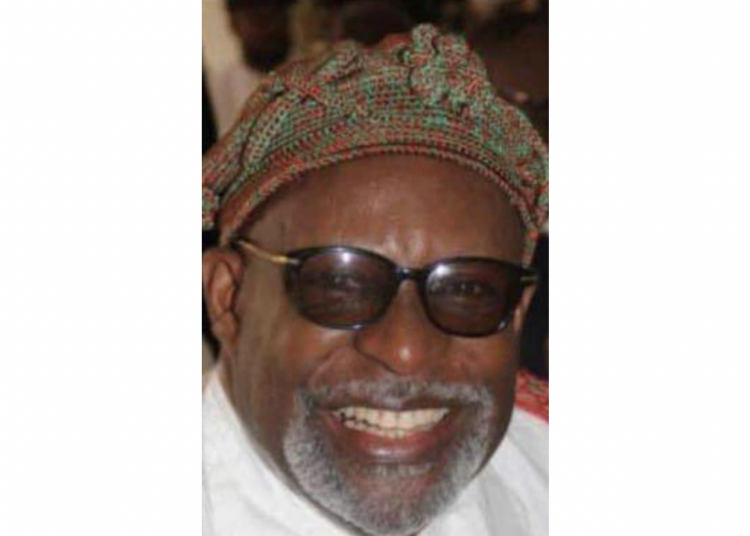The coastal people of Akwa Ibom State have slammed the attempt by some persons to politicise the mapping of the state with a law enacted by the State House of Assembly, saying that the action was purely based on subsisting court rulings spanning years.
The group under the auspices of Coalition of Aboriginal Coastal Local Government Areas of Eket, Esit Eket, Onna, Mkpat Enin and Ikot Abasi, said in a statement released in Abuja on Sunday that they were disturbed by the falsehood being introduced into an entirely legal procedure, which had led to the disturbance of public peace in parts of Akwa Ibom State.
In a statement signed by the President General of the Ekid Nation, Dr. Samuel Udonsak, the group warned those fanning the embers of crisis over the mapping of the state to be properly guided by both historical and legal facts and desist from causing avoidable trouble in the peaceful state.
Dr. Udonsak said: “The leadership of the Coalition of Aboriginal Coastal LGAs of Eket, Esit Eket, Onna, Mkpat Enin and Ikot Abasi met to review the mapping of the state, the disturbances within its territory and the need to improve the security within its areas. The Coalition found the need to also address the unsuspecting public on the facts of our Littoral status and wish to state as follows.
“The Coalition thanks the Akwa Ibom State House of Assembly, immediate past Governor of Akwa Ibom State Deacon Udom Emmanuel and the State Surveyor General for their courageous and bold step in giving Akwa Ibom State an official map since its creation, and believes that this would put an end to the irritating, chronic and perennial conflicts emanating from lack of official boundaries between some local governments in the state especially along our Atlantic coastline.
“Akwa Ibom State has never been mapped before and we agree that this exercise is the constitutional responsibility of the state. The Coalition notes with disgust and utterly denunciates, and condemns the ugly violence and destruction of lives and property at Ikot Akpan Udo village in Ikot Abasi LGA, Coconut Plantation and the skirmishes at Esit Urua village, Eket LGA by Ibeno, Eastern Obolo and their Ijaw cohorts and mercenaries, against the peaceful aboriginal coastal communities. We call on Government to speedily restore order, bring all the perpetrators to book and increase their security presence in all the vulnerable aboriginal coastal communities.
“The coalition would like to inform the unsuspecting public, that the ownership of the entire coastline of AKS has been determined in perpetuity by various apex courts, some as far back as 1918.
“The 1916 Supreme Court Judgment confirmed the ownership of the entire (Stubbs Creek) swamp land east of Qua Iboe River to Eket people. Indeed between 1914-1918 the Supreme Court siting in Calabar, the West African Court of Appeal (WACA) and the Privy Council in London had decided that the entire coastal Area from the creek known as Stubbs Creek and the sea extending from the mouth of Qua Iboe River Eastward along the sea shore to Child point (Okposo II) belongs to the Ekets, to wit: Esit Eket and Eket Local Government Areas.
“An Order/Law of the then Eastern Nigerian House of Assembly as amended in 1955 establishing Stubbs Creek’s Forest Reserve spanning from big town in Ibeno Local Government through Edo, Uquo, Akpautong, OdoroNkit, and Ntak Inyang communities in Esit Eket Local Government Area with a map duly delineated, described and surveyed with beacon stones at strategic locations by then Eastern Regional Government of Nigeria in 1929 fully established the owners of each section and village of the Stubbs Creek.
“In Suit No. HEK/108/2002 an Order of Court had expressly directed the Surveyor General of Akwa Ibom State to “produce map of Esit Eket Local Government Area and Akwa Ibom State locating the village Ine Akpautong in its proper position in Esit Eket Local Government Area.
“Akwa Ibom State Government has only complied with this order by the just concluded mapping.
“In the 1947 and 1948 cases the people of Onna obtained judgment in the Akata case (MO/48/1947 and MO/33a/1948) that established Akata as the natural outlet to the sea for ONNA people.
“The Cross River State Law No 9 of 1983 in Gazette No 33 at page A87 listed the villages of Ntafre, Iwud Ukpum, and Ine Ikwe amongs in Oniong and Nung Ndem clans; granting Oniong and Nung Ndem clans of Onna Local Government Area access to the sea.
“In the 1995 Judicial Commission of Inquiry Report into the Land dispute between Okoroette in Ikot Abasi Local Government Area then and Ikot Ekong, Ikot Akpaden, Ikot Obio Ndoho etc all in Mkpat Enin Local Government Area, expressly recommended that the Local Government Boundaries Commission be advised to amend the boundary between Ikot Abasi and Mkpat Enin using the plan of the land in dispute in line with the West African Court of Appeal (WACA) judgment in suit nos. C/21/41 and C/8/43 (consolidated suites between the Ibibio versus Opobo and Andoni) accordingly, the eight villages of Okoroette, Amadaka, Elile, Kampa, Okoro Mbokho, Iko, Akpabom and Atabrikang II should thus be included in Mkpat Enin Local Government Area. Only in the just concluded mapping of the State has this order been complied with.
“The 1990 case (HET/23/77) and its subsequent Appeal (2001) Ndon Ibotio and Ibotio people won its right over Iko in respect of all Ikot Udobia Land granting them access to the sea.
” In 1941, in the celebrated Down Bellow case, at the West African Court of Appeal (WACA) (C/8/1943) gave all the land, left bank of Imo River as far down to Opobo River to Qua Iboe River to Ibibios; which today are the people of Ete.
“For the avoidance of doubt, the Ijaws, including those who have just suddenly realised that they are Ijaws and Obollo must be contented with lands donated them by our forebears, when they the Ijaws arrived in distress on our shores. For, when they arrived, they didn’t bring any land in the boats with them.
“The Coalition would like to put the Ijaws and Obollo on notice that we are not opposed to their continuous canvassing for Ijaw or Obollo State or any State of such appellation ( as they did during the 2014 National Conference) but no Ibibio aboriginal land would be part of such State.
“While it is our choice to stay with our Ibibio kith and kin in a united Akwa Ibom State, we do not prevent them from returning to their homeland and join their Ijaws and Obollo brothers in their State, instead of whipping false public sentiments on what does not rightly, legally and naturally belong to them,” the coalition stated.
We’ve got the edge. Get real-time reports, breaking scoops, and exclusive angles delivered straight to your phone. Don’t settle for stale news. Join LEADERSHIP NEWS on WhatsApp for 24/7 updates →
Join Our WhatsApp Channel










